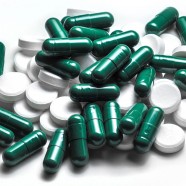
Many different medications affect thyroid function. Medications like dopamine agonists, glucocorticoids, rexinoids and somatostatin analogs suppress TSH in the thyrotrope (a hormone secreted by the pituitary gland that regulates the production of thyroid hormones) and in the hypothalamus. They also affect hormone secretion, synthesis and metabolism.
Drugs can also disrupt thyroid hormone levels by altering its affinity for binding to carrier proteins like thyroxine-binding globulin, which binds thyroid hormones in the bloodstream for circulation. The worst of this group by a significant margin is rexinoids, shown to be extreme hormone receptor agonists causing hypothyroidism in patients.1 A study published in the New England Journal of Medicine involving 27 patients conducted by Sherman SI, Gopal J. and colleagues dealt with drug suppression of TSH and the causes of central hypothyroidism associated with retinoid X receptor-selective ligands.
Case Study
An example from this case study: “A 76-year-old male with a diagnosis of cutaneous T cell lymphoma presented for enrollment into an open-label study of oral bexarotene after failing multiple topical and systemic therapies. Within two weeks of starting bexarotene (650 mg/m2/day), the patient developed symptoms of hypothyroidism, including cold intolerance, fatigue and depression. He was noted to have low serum T4 and T3 levels consistent with hypothyroidism, but his serum TSH was also suppressed. The bexarotene was discontinued; the patients’ thyroid function tests normalized, and symptoms resolved.”2
Rexinoids
Rexinoids like Bexarotene interact with a specific nuclear hormone receptor. Nuclear receptors are a group of proteins found within cells that are responsible for sensing steroid and thyroid hormones, among other molecules. Rexinoids suppress serum TSH in most patients and cause clinically significant hypothyroidism. 3
Glucocorticoids
Glucocorticoids have long been known to affect serum TSH levels in patients, in particular at the level of the hypothalamus involving TSH secretion. A main reason for decreased levels of TSH secretion from the pituitary was noted in a study released by Alkemade and colleagues, who determined that high dosage levels of glucocorticoids decreased TRH mRNA levels in the human hypothalamus. 4
Dopamine – Medication
Dopamine (the medication form of a substance that occurs naturally in the body) and dopamine agonist bromocryptine have been shown to suppress serum TSH. When used in cases of critical illness and with disorders like hyperprolactinemia (abnormally high levels of prolactin in the blood), these substances suppress serum TSH. Bromocryptine has also been shown to reduce serum TSH in patients with pituitary resistance to thyroid hormone therapy. 5 Through the hypothalamic-pituitary-thyroid axis, dopamine can activate dopamine D2 receptors but appears to have the opposite effect on the pituitary thyrotrope and the hypothalamus. Studies relating to the use of dopamine infusions on critically ill patients showed the probability of iatrogenic-induced central hypothyroidism in these patients. 5
Somatostatin
Somatostatin analogs are drugs used in the treatment of tumours, carcinoid tumours, glucagonoma, and benign pituitary tumours and as an inhibitor of growth hormones. As well, these drugs are used in infusion therapies in an attempt to prevent retinopathy in diabetics, which also suppresses TSH levels. Studies have revealed that long-acting somatostatin analogs suppress serum TSH and dampen TRH-stimulated TSH levels in healthy volunteers. 6
*Medications are a widespread problem disrupting the body’s critical nutritional balance. Check out my previous article for more information on this topic. drug-induced nutrient depletion (DIND)
References
1. Thyroid Replacement Hormones http://www.medicinenet.com/thyroid_replacement-oral/page2.htm
2. New Study Reveals Why 1 in 6 Hypothyroid Patients Still Feels Bad on Levothyroxine by Joe Graedon January 15, 2015 peoples pharmacy https://www.peoplespharmacy.com/2015/01/15/new-study-reveals-why-1-in-6-thyroid-patients-still-feels-bad-on-levothyroxine/
3. Panicker, Vijay, et al. “Common variation in the DIO2 gene predicts baseline psychological well-being and response to combination thyroxine plus triiodothyronine therapy in hypothyroid patients.” The Journal of Clinical Endocrinology & Metabolism 94.5 (2009): 1623-1629. http://jeffreydachmd.com/why-natural-thyroid-is-better-than-synthetic/ Jeffrey Dach MDBioidentical Hormones Natural Thyroid
4. Heidi Godman, Executive Editor, Harvard Health Letter, ‘For borderline underactive thyroid, drug therapy isn’t always necessary’ November 29, 2016. http://www.health.harvard.edu/blog/for-borderline-underactive-thyroid-drug-therapy-isnt-always-necessary-201310096740
5. Drugs and Medical Treatments that Reduce Thyroid Leaves; http://www.nytimes.com/health/guides/disease/hypothyroidism/print.html
Resources New York Times: Organizations
American Thyroid Association. Montefiore Medical Center, 111 E. 210th St., Bronx, NY 10467.
Endocrine Society. 4350 East West Highway, Suite 500, Bethesda, MD 20814-4410. (301) 941-0200.
Thyroid Foundation of America, Inc. Ruth Sleeper Hall, RSL 350, Boston, MA 02114-2968. (800) 832-8321 or (617) 726-8500.
Thyroid Society for Education and Research. 7515 S. Main St., Suite 545, Houston, TX 77030. (800) THYROID or (713) 799-9909.
Gale Encyclopedia of Medicine. Cop
6. Lightman SL, Fox P, Dunne MJ. The Effect of SMS 201-995, a Long-Acting Somatostatin Analogue, on Anterior Pituitary Function in Healthy Male Volunteers. Scand.J.Gastroenterol.Suppl. 1986;119:84–95. Download citation http://dx.doi.org/10.3109/00365528609087435
Copyright © 2024 – All Rights Reserved – Michelle Honda Ph.D.
Announcement
Look for my new forthcoming books “Reverse Depression Naturally” (Spring 2020) “Reverse Inflammation Naturally” (May 31, 2017) “Reverse Thyroid Diseases Naturally” (June 2018) “Reverse Alzheimers/Dementia Naturally” (Nov.2018) “Reverse Heart Disease Naturally” (Jan.31, 2017) and “Reverse Gut Diseases Naturally Nov. 2016
Where to Purchase:
Reverse Gut Diseases Naturally Nov. 2016
Reverse Heart Disease Naturally Jan. 2017
Reverse Inflammation Naturally May 2017
Reverse Thyroid Disease Naturally June 28/2018
Reverse Alzheimers Disease Naturally Nov. 2018
Reverse Depression Naturally Spring 2020
Hatherleigh Press Page Buy Book RGDN
Local Book Stores in the US and Canada
Disclaimer
While close attention was given to the accuracy of the information in this article, the author accepts neither responsibility nor liability to any person with respect to injury, damage, loss or any circumstances involving alleged causes directly or indirectly related to the information in this article. The sole purpose is to educate and broaden one’s awareness. This information is not meant to replace medical advice or services provided by a health care professional.





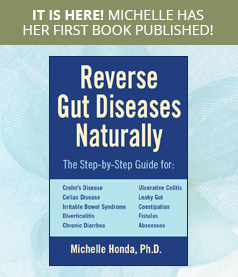

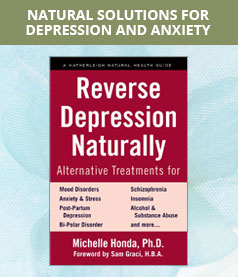
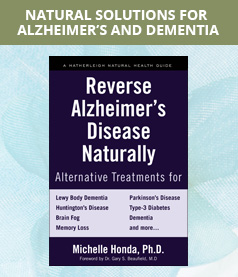
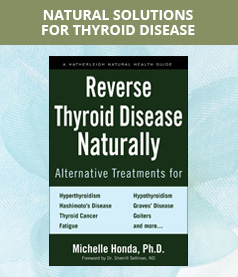

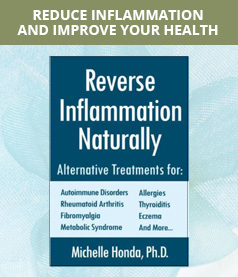
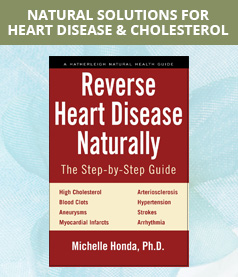
Follow Us!